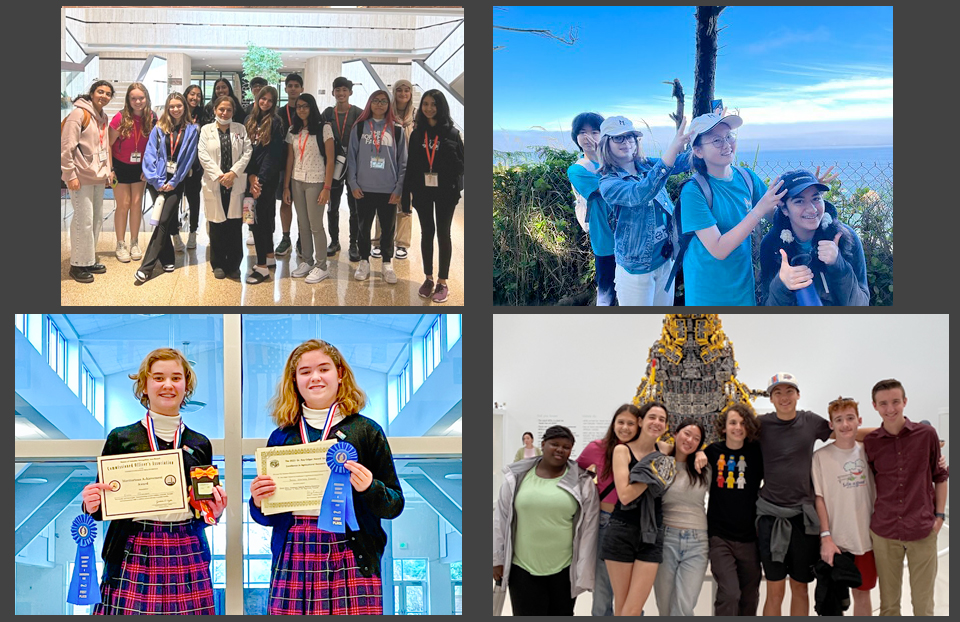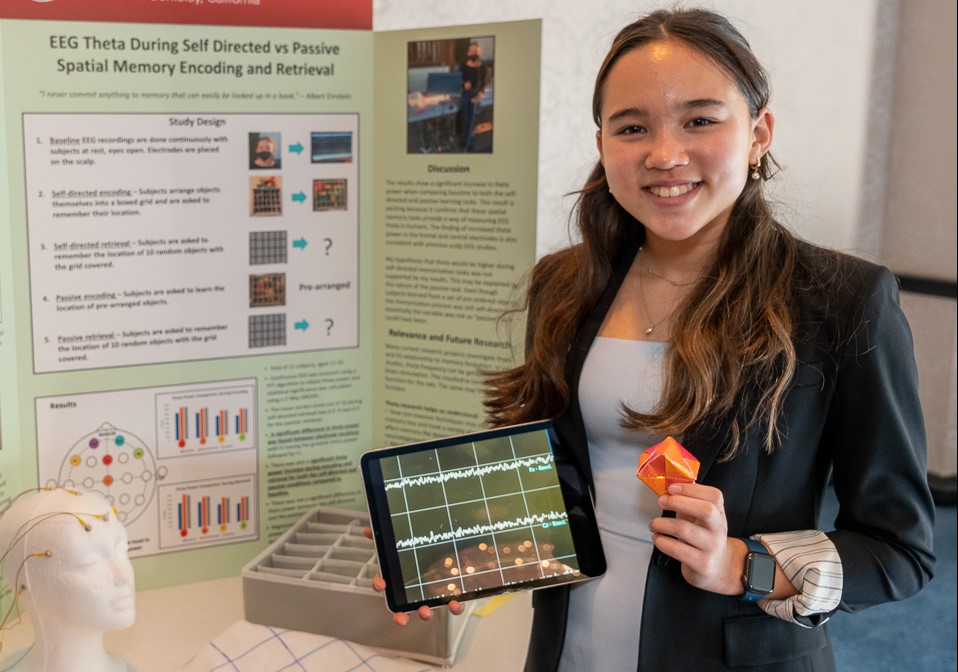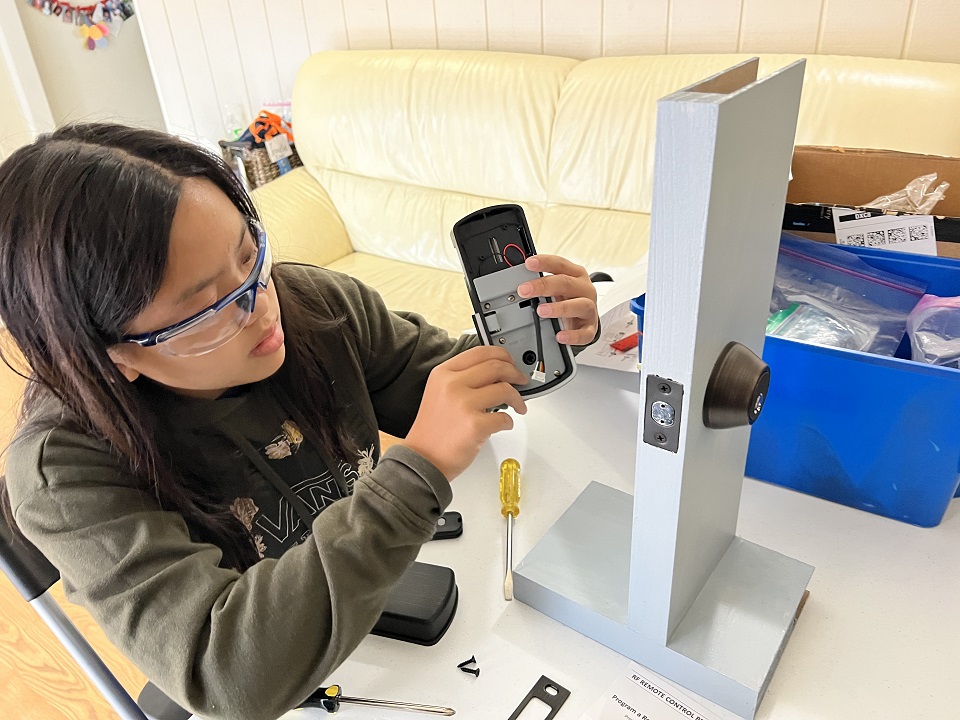‘Solving problems and helping people’: Middle schoolers use science to save the world

When she’s not studying or in class, you can find middle schooler Leia Gluckman volunteering with Safe Place for Youth, a homeless shelter for teenagers in Venice, Calif. One day, she asked the director what the homeless wanted and needed. She learned that personal hygiene products like Gold Bond and toothpaste were high on the list.
So Leia set out to develop a multipurpose product that would serve as a dry shampoo, a powdered toothpaste, and a body powder, similar to Gold Bond. “This didn’t start out as a science fair project for me,” she said. “I was looking for a way to help the shelter that I’ve been volunteering with.”
Science is about solving problems and helping people. It’s about how you use it to help the rest of the world.
She looked for common ingredients between Gold Bond, powdered toothpaste, and dry shampoos. Turning her family’s kitchen into a lab, Leia tested several ingredients, like cloves, cinnamon, and more, and found that corn starch and baking soda worked best. She searched for substitute ingredients to make them safer for multiple uses and internal or oral use.
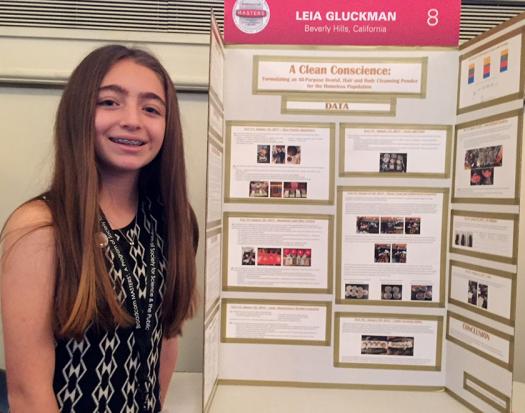
“There’s nothing that’s actually a combination of all three,” she said. Dr. Bronner’s and Gold Bond are close, but can’t be used as toothpaste or internally. Many products that exist only serve one purpose. Leia knew firsthand that these kids could not afford the cost and inconvenience of carrying multiple supplies, so creating a single multipurpose personal hygiene product was crucial.
Leia, along with 29 other promising middle school STEM students, presented projects like these at the Broadcom MASTERS Project Showcase at Union Station in Washington, D.C. on October 21, 2017.
“Science is about solving problems and helping people,” Leia said. “It’s about how you use it to help the rest of the world.” She is also working with aid organizations to see how her product can be used in the military, developing countries, and refugee camps. In addition, she plans to find a way to make her product mosquito-repellant.
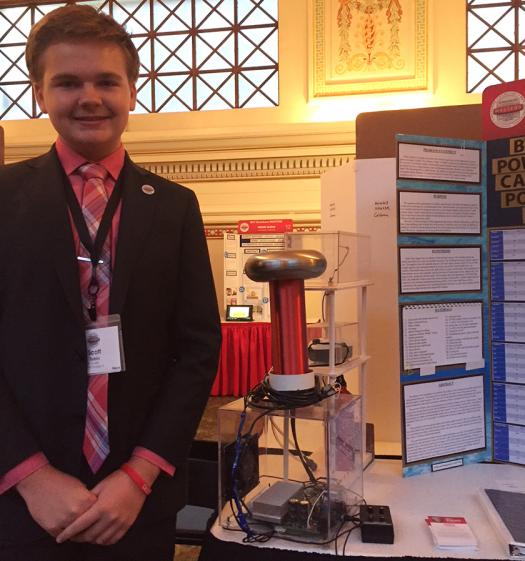
Many of the Broadcom MASTERS finalists’ projects focused on ways to improve public health. Scott Tobin lives in Port Orange, Fla. and lost power and access to drinking water for several days last year during Hurricane Matthew. It made him think about others in the world who don’t have access to clean drinking water every day. “I wanted to do something about it, I wanted to fix it,” he said.
With a Tesla coil to purify contaminated water, Scott used the plasma spark produced by the coil to aerate the ozone gas it produced into water. As a result, contaminated cells, bacteria, or viruses get small holes and die. “This makes the water sterile and safe to drink,” he explained.
His system can be scaled down to the size of one solar-powered thermos, or up to provide clean water to an entire village or water purification plant. His current proof-of-concept design can purify a liter of water for 30 minutes. Scott’s method is three times more efficient than current chlorination methods, because ozone is more soluble, he said. The ozone created by the Tesla coil’s plasma arc aerates contaminated water. He plans to focus next on seawater desalinization. Ocean water could provide a large portion of drinking water, if it can be desalinated.
I was looking for a way to help the shelter that I’ve been volunteering with since I was little.
Honora Navid, of Pittsburg, Pa., has always had a green thumb. From a young age she started working on her family’s organic garden. Inspired by President Barack Obama’s 2016 memorandum encouraging private citizens to make habitable places for pollinators, she decided to plant a garden in her front yard including a variety of native plants, nativars, and cultivars to discover which pollinators, like bees, flies, butterflies, and beetles, preferred. Through her two-year study, Honora found that native plants — like oxeye sunflower, purple-headed-sneezeweed, and milkweed — had the most insect activity.
Honora’s research suggests that these plants could help boost the population of pollinators. “Pollinators are extremely important,” she said. “They’re responsible for the production of most human food. Three out of every four mouthfuls of food we consume are made with pollinated ingredients.”
Pollinators are extremely important. They’re responsible for the production of most human food.
Healthy pollinator habitats prevent erosion and keep plants healthy. Many birds rely on a diet of pollinators. “By ignoring the decline of native pollinators and plants, we ignore biodiversity,” she said.
The 30 finalists will continue to compete as teams in hands-on STEM challenges over the next few days, and winners will be announced later this week. Read more about their projects here.
